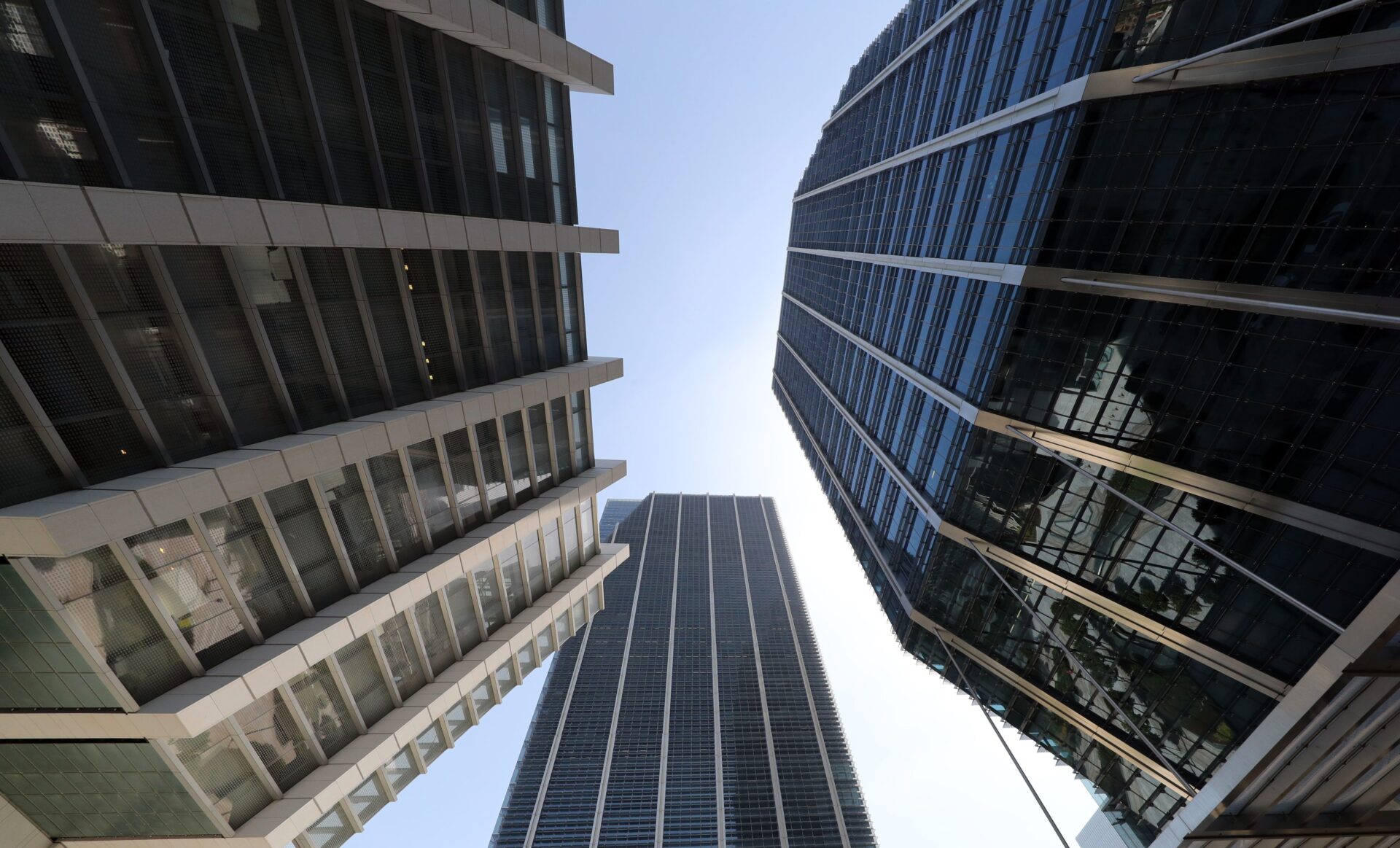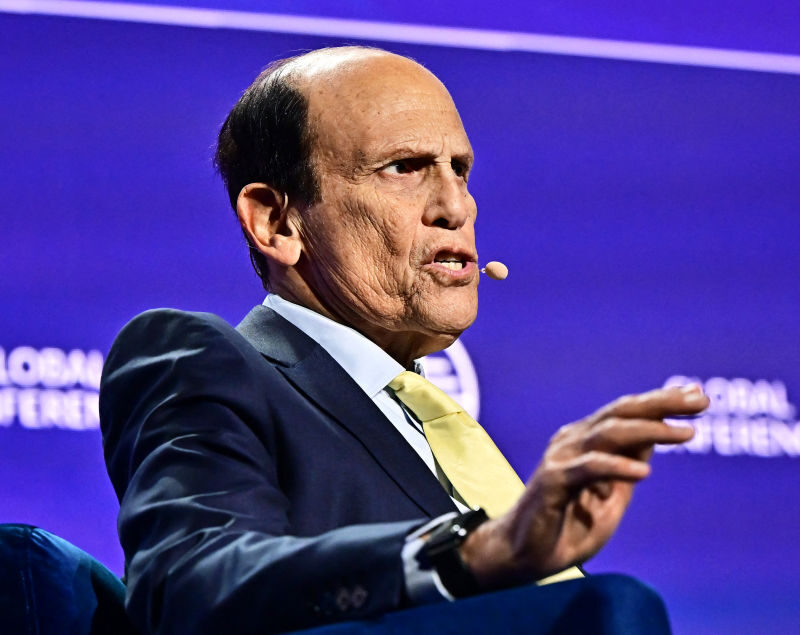
Abu Dhabi Global Market in the UAE capital. (KARIM SAHIB/AFP VIA GETTY)
Israel’s most active VC firm aims to triple head count at Abu Dhabi AI office
OurCrowd subsidiary IDI is attracting talent to the Emirati capital to develop machine-learning tools for customers in fintech, energy, health care and government
ABU DHABI, United Arab Emirates – Israel’s most active venture capital firm is looking to triple the head count at its Abu Dhabi office dedicated to artificial intelligence development as it ramps up efforts to develop tools for customers in fintech, energy, health care and government.
The UAE venture, Integrated Data Intelligence, is a subsidiary of Jerusalem-based OurCrowd, the first VC firm to register in the UAE after the Abraham Accords were signed three years ago and with $2.2 billion in committed capital.
IDI, which is less than a year old, is the commercial byproduct of OurCrowd’s decade-long, $100 million investment into developing a new kind of investment platform that has made it among the most prolific VC investors in the world. The platform has allowed its 260,000 investors to invest in over 370 portfolio companies from almost every country in the world while adhering to local laws in those investors’ respective jurisdictions.
“That’s a lot of data,” Sabah al-Binali, executive chairman of OurCrowd Arabia, told The Circuit.
The startup, which was seeded with an initial joint commitment of $60 million from OurCrowd and the Abu Dhabi Investment Office (ADIO), is the venture firm’s first R&D center outside Israel. It continues to develop AI for OurCrowd but is now using its technology as a blueprint for other platforms that will benefit by applying AI to their own data. The aim is to increase business efficiency, reduce costs and improve outcomes, Jon Medved, OurCrowd’s founder and CEO, wrote at the time the company was launched.
IDI has 16 people from 15 countries working in the Al Maryah Island office at Hub71, the emirate’s startup and technology campus, with two employees from Israel and two recruited from the first graduating class of Abu Dhabi’s AI research university. IDI is looking to grow to 50 employees by the end of 2024.
The company’s presence in Abu Dhabi is a reflection of al-Binali’s enthusiasm and optimism for a productive relationship between Israel and the UAE — and his almost dogged pursuit of finding ways to work together that go beyond the stereotype that Israel is a technology hotbed and the Gulf is a destination market to raise capital.
“In Israel they have a huge supply of AI talent but the demand for AI talent far exceeds that,” al-Binali said.
“So I raised my hand, and I said, ‘What about Abu Dhabi?’”
“It’s easy to attract talent here, because getting a visa is like this,” al-Binali said while snapping his fingers, adding that his understanding of the market and government initiatives helped to get the business set up.
Al-Binali, a Princeton graduate with a Ph. D. from Columbia University, worked for over 20 years in investment and financial services spanning the UAE and Saudi Arabia, including the acquisition of a Saudi investment bank by Credit Suisse and the 2012 sale of Zawya, a Dubai news service, to Thomson Reuters.
With the Abraham Accords he sees an unmissable opportunity. He joined OurCrowd within a month of the landmark U.S.-brokered agreement and has been a connector for the firm ever since.
It was al-Binali who helped OurCrowd gear its investing platform toward an AI future. He recommended Hasanat Dewan, whom he met while they were both postgraduate students at Columbia in New York, to the role of chief innovation officer in 2021.
Dewan had held posts in technology transformation for E*TRADE, BNY Mellon, Russell Investments, Merrill Lynch and Deutsche Bank. Today he’s based in Abu Dhabi as CEO of IDI.
And it is a good time for OurCrowd to be diversifying into technology development amid a global slowdown in venture capital activity.
True to form, al-Binali sees the current environment as an opportunity.
Gulf startups traditionally have had strong access to early-stage capital, but later-stage investments – which typically command larger check sizes – are harder to come by. Venture capital firms tend to be smaller and more conservative.
“Israeli VCs are much more comfortable at the higher risk segments and deploying that,” al-Binali said. “There are, at the B, C [funding] rounds, we see opportunities.”
His advice to Israelis looking to forge ties in the Gulf? Pace yourself.
“If you sit there sending emails every week, you’re gonna burn out,” he said, adding that slowing down and being deliberate can be worth it.
“The payoff in the end is big. Not just in terms of investment size but in terms of commitment. Because once an Emirati or Gulf investor comes in, they’re going to back you all the way. It’s not hot money. So you have to earn that trust.”


